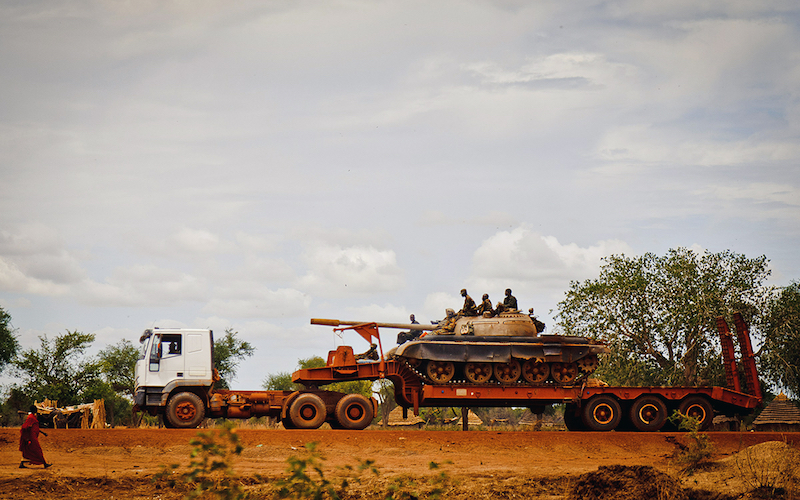
In South Sudan, China Peacemaker Role Marks a First in its Diplomacy
This summer marked the third anniversary of South Sudan’s independence, yet few of its citizens had reason to celebrate. As the youngest member state of the United Nations, South Sudan has endured a bloody civil war since December that has virtually shut down its oil-based economy.
The conflict began after President Salva Kiir accused Riek Machar (his sacked deputy) of attempting to orchestrate a coup to oust him. The civil war quickly took on an ethnic/tribal dimension, with soldiers, police officers and civilians fighting each other. Both sides have been accused of war crimes. Tens of thousands of South Sudanese have lost their lives and more than 1.5 million have been displaced.
The influx of hundreds of thousands of South Sudanese into neighbouring countries is creating new challenges for regional governments already struggling with refugee crises from other conflict zones.
Being situated in a strategically important region of Africa, a number of foreign powers are invested in South Sudan’s future. The Intergovernmental Authority on Development – an East African trade bloc comprised of Djibouti, Eritrea, Ethiopia, Kenya, Somalia, South Sudan, Sudan and Uganda – has been leading international efforts to end South Sudan’s civil war, without success.
As South Sudan’s No1 foreign investor, China has come to play an unusually active role in an effort to resolve the conflict. Such involvement contradicts China’s traditional doctrine of non-interference in foreign countries’ domestic disputes, but Beijing’s economic and geopolitical interests in South Sudan have convinced it to bend its rules.
China has high stakes in both Sudan and South Sudan, having invested US$20 billion in Sudan prior to the 2011 partition, and an additional US$8 billion in South Sudan following its seccession.
As 5 percent of China’s crude oil came from South Sudan (when it was at full production), the restoration of stability is likely to remain a high priority for Beijing.
While playing its diplomatic role, China also happens to be the government’s top weapons provider. China recently sold US$38 million worth of ammunition, grenade launchers, machine guns and missiles to South Sudan’s government. As a result, many voices in South Sudan and the international community have accused Beijing of prolonging the conflict.
Some rebel figures have also criticised Beijing, claiming it is playing a contradictory role by arming South Sudan’s military while investing time, effort and money in peace talks.
South Sudan’s rebels do not view China as a legitimate or genuine peace broker, and accuse it of playing peacemaker simply to protect its oil interests. Such a perception can only be heightened by China’s recent decision to deploy 700 troops to the South Sudanese states of Unity and Upper Nile, in an effort to safeguard China’s workers and assets. It marks Beijing’s first contribution of a battalion to any UN peacekeeping force.
Given China’s growing dependence on Africa’s natural resources, protecting its energy investments across the continent will continue to drive Beijing’s Africa foreign policy. Regardless of whether China’s efforts to broker peace in South Sudan succeed, Beijing’s approach to foreign policy is being greatly influenced in the process, as is its standing in the global diplomatic arena.
If Beijing does not succeed, China will at least have been seen as trying to make a difference – even if some see its role as contradictory. If China does succeed, it may enhance its ability to influence other diplomatic efforts to produce stability in Africa, and elsewhere, while safeguarding its interests. South Sudan may prove to be a litmus test in that regard.
This article was originally posted in the South China Morning Post.

